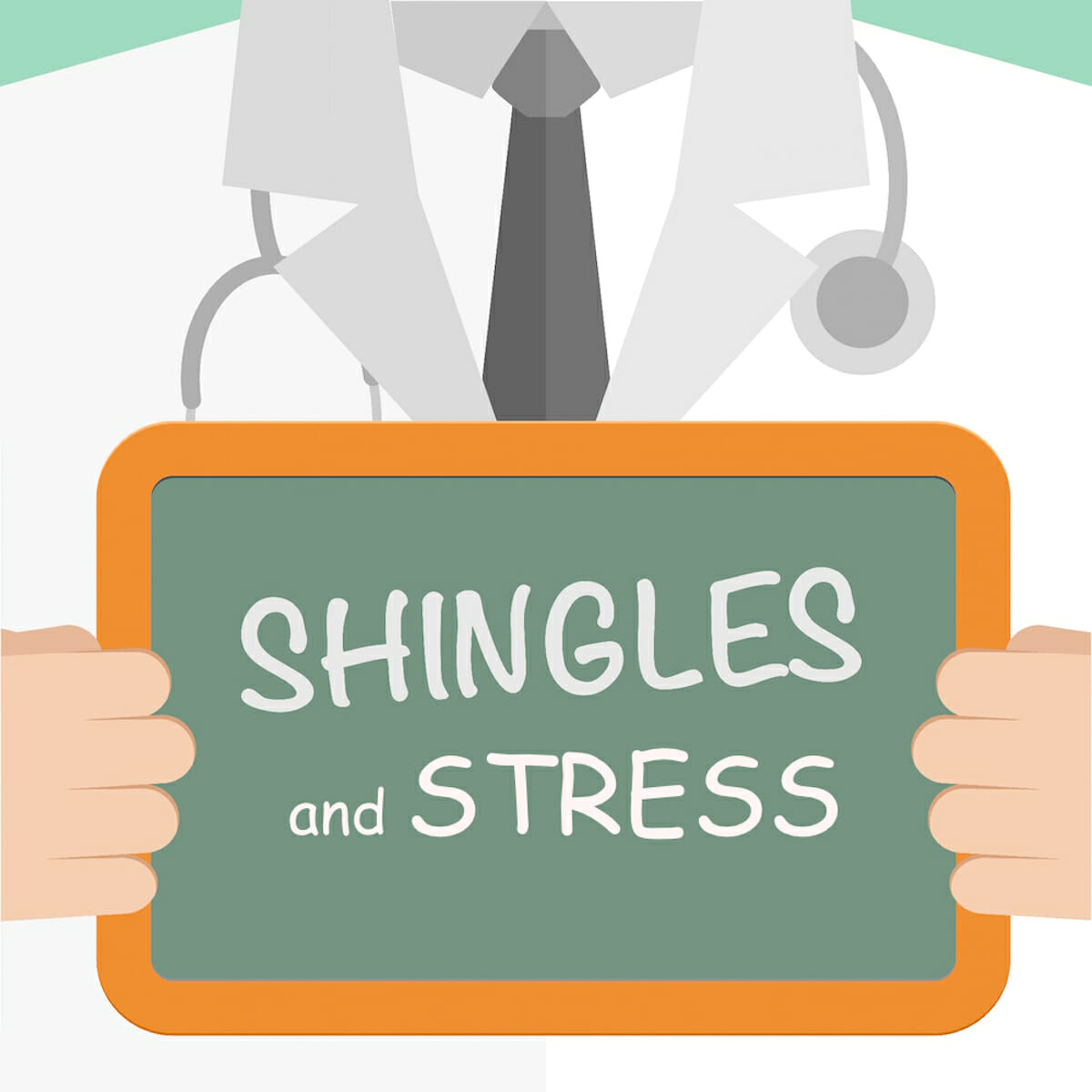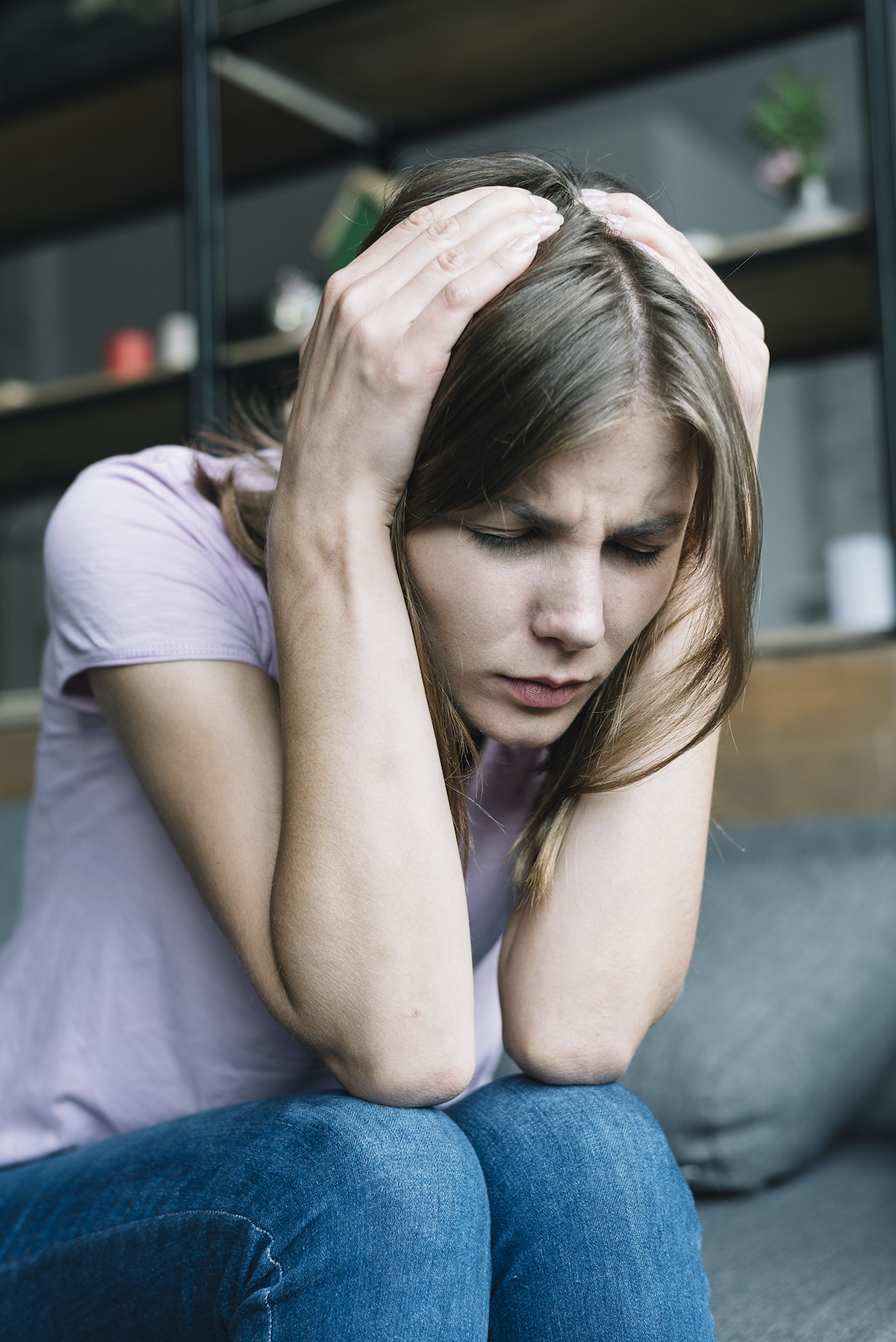Significant stress is believed to trigger shingles by weakening the immune system, which leads to the reactivation of the dormant varicella-zoster virus (chickenpox) in the body.
Shingles, also known as herpes zoster, is a viral infection that causes a painful, stripe-shaped rash with small blisters to appear on one area of the body. It occurs when the varicella-zoster virus, the same virus that causes chickenpox, reactivates.
A person who has had chickenpox still has the virus that causes it inside their body. It remains dormant and reactivates later in life as shingles.
Experts are not certain about what triggers the reactivation of shingles. However, many believe that significant or long-term stress may play a role.
While anybody can get shingles, it is more common in older adults and people with weak immune systems. Experts believe that a weak immune system is crucial in triggering herpes zoster reactivation. One of the biggest misconceptions about shingles is that it only affects older adults. Although people over the age of 50 are more likely to develop shingles, the disease can also affect younger people. Even children can develop shingles.
A 2018 study found that perceived mental stress, negative life events, and a low sense of purpose may contribute to the development of shingles and postherpetic neuralgia, a complication of shingles. Moreover, men with high mental stress were twice as likely to be at risk of incident herpes zoster.
In a 2022 review, researchers also argued that the reemergence of shingles among people with COVID-19 might be related to the interplay between psychological and immunological stress in the body.
A stressful event causes the release of cortisol and adrenaline, which are part of the fight or flight response. Cortisol also suppresses the immune system. Meanwhile, prolonged stress can alter bodily processes leading to a host of health problems.
However, there are also studies with conflicting results. A 2014 study reassessed the link between shingles and stress using data from 39,811 people who experienced stressful events, including the death of a spouse, ICU admission, surgeries, and injuries. The researchers found that the stressors increased mental health visits but not shingles.
Shingles triggers and risk factors
Having chickenpox is the primary risk factor for getting shingles. Age is another factor that increases a person’s likelihood of getting shingles and having severe complications.
Certain health conditions and treatments weaken the immune system and put a person at a higher risk of getting shingles. People with a family history of shingles and physical trauma also have a greater risk of getting shingles.
Symptoms of shingles
The primary symptom of shingles is a painful, blistery rash. It commonly appears as a single stripe on either side of the torso or one side of the face. These typically burst and scab over in 7–10 days and clear up within 2–4 weeks. It is also important to cover the rash and practice proper hygiene to avoid spreading the virus.
A person may feel pain, tingling, or itching in the area for several days before the blistery rash appears. Shingles may appear throughout the body and look similar to chickenpox, though this is rare. This is more common in people with weakened immune systems.
Summary
Like other viral infections, it is self-limiting and usually without complications. However, it may cause long-term complications.
The CDC recommends people aged 50 and older and immunocompromised individuals aged 19 and older take two doses of Shingrix to prevent shingles and its related complications.
According to the U.S. Department of Health and Human Services, the shingles vaccine provides protection from the virus for about 5 years. After that, the effectiveness of the vaccine decreases. Currently, the vaccine is only given once.
The shingles vaccine is safe for most people. As always, someone considering the vaccine should discuss it with their doctor. Side effects from the vaccine are usually mild and include pain, redness, and swelling at the injection site.
Shingles can affect someone more than once. People who have already had shingles can also get vaccinated to prevent getting the infection again.
Sources:
https://www.medicalnewstoday.com/ articles/314047
Mayo Clinic Staff. (2016, September 27). Shingles: Symptoms
http://www.mayoclinic.org/diseases-conditions/shingles/basics/symptoms/ con-20019574
Shingles (herpes zoster). (2016, August 19)
Shingles (herpes zoster): Complications. (2016, August 19)
http://www.cdc.gov/shingles/about/ complications.html
Shingles (herpes zoster): Transmission. (2016, August 19)
https://www.cdc.gov/shingles/about/ transmission.html
Shingles (herpes zoster): Vaccine basics. (n.d.)
https://www.vaccines.gov/diseases/ shingles/index.html
Shingles (herpes zoster): Vaccination. (2014, November 25)
https://www.cdc.gov/shingles/ vaccination.html
Shingles myths and facts for consumers. (n.d.)












